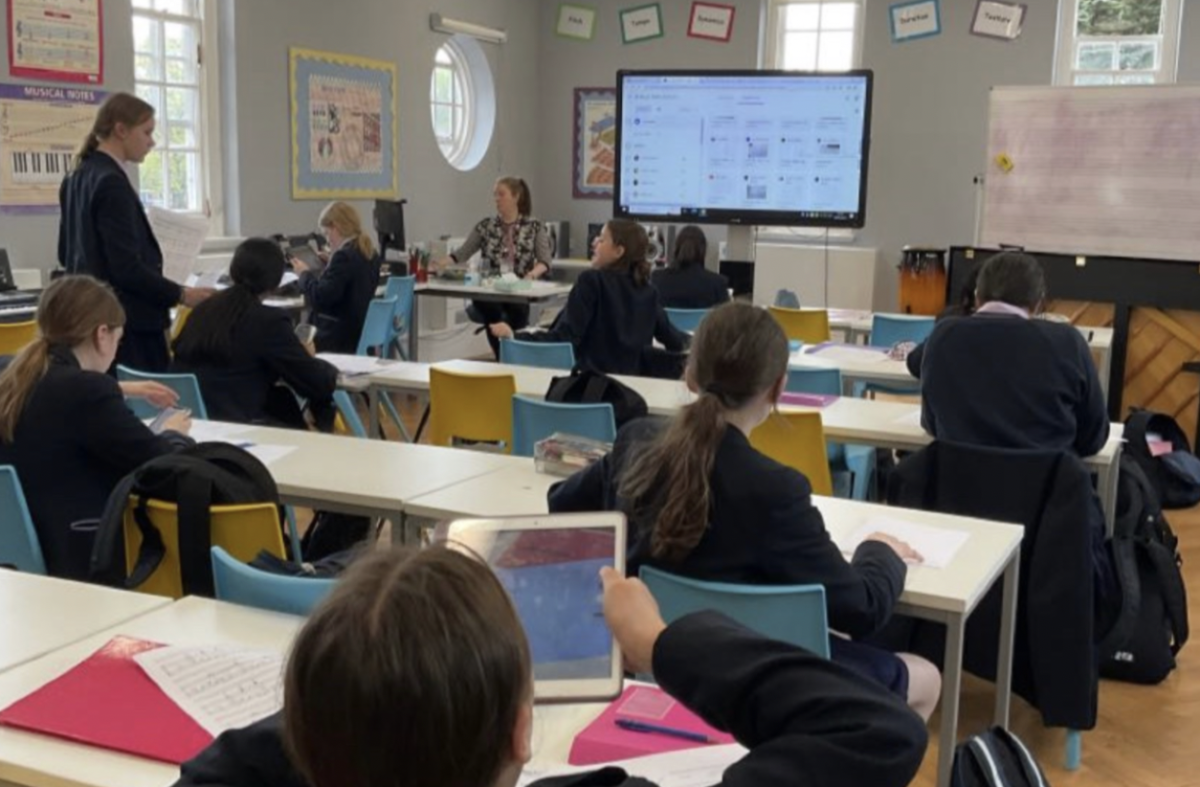16-year-old Livy Spencer walks into her classroom to take her math General Certificate of Secondary Education (GCSE) exam. Despite all her stress, the thing she is most looking forward to is finishing the test. She has always liked math, yet preparing for the GCSE was one of the most difficult things she has ever done. As she finishes and turns in her test, she feels immensely relieved, knowing she will never have to study math again.
After taking office in October 2022, Prime Minister Rishi Sunak announced his “math until 18” plan. The plan aims to change how the U.K. only requires students to take math until year 11, or 10th grade in the U.S. Sunak intends to make math required up until lower and upper sixth form, or 11th and 12th grade in the U.S.
However, the U.K. already has issues with a lack of teachers and funding in its schools, so requiring maths until the sixth form would just add to this problem. Furthermore, since the U.K. wants to implement this new math plan, more funds would be cut from art programs, an ongoing issue in U.K. schools today..
Thus, Sunak should not go forward with his “math until 18” plan until the other problems with schools in his country are resolved or at least improved.
Government data shows that the number of GCSE drama and music students has dropped by a fifth in the past decade in the U.K. This is because of the government cutting funds for art programs. The government will fund music and arts programs with 9.40 pounds per pupil per year, a mere 0.12% of the 7,640 pounds the government is set to invest in total for schools in 2023. This has caused one in seven music teachers and one in eight drama teachers to leave the profession.
Art has been linked to healing from trauma, building a sense of accomplishment and relieving stress, according to the University of Washington. These are important for school, especially considering school-aged children have just experienced the COVID-19 pandemic. Keeping art in schools is a valuable asset because it will help students with academic stress, boosting their self-esteem and recovery from the pandemic.
Moreover, the growing problem of a lack of teachers in U.K. schools is another reason why the U.K. is not prepared to go forward with the “math until 18” plan.
Low wages and excessive workload are to blame for teacher vacancies in the UK being 93% higher than before the pandemic. The study done by the National Federation of Education Research, (NFER) also found that vacancies are up 37% from last year.
This issue of recruitment puts the quality of education at risk. This is because schools turn to teachers who specialize in other subjects to teach the subjects with the least amount of teachers.
Teacher recruitment to primary and secondary schools is expected to be 20% below target. This shortfall will impact many secondary school subjects such as physics, foreign languages, and computing.
WIS upper school math teacher Neil MacDonald added that teaching needs to become a more attractive job overall in order to attract more qualified teachers in every subject. “Being a teacher has its upsides, but it is also a difficult life to live, so people make other choices,” MacDonald said.
The U.K. government recently made an offer to several teacher unions: a one-off payment of 1,000 pounds in 2023, and a rise of 4.5% in their paycheck in upcoming years. Yet, 87% of teachers in the National Association of Schoolmasters Union of Women’s Teachers (NASUWT) voted against this pay offer. This is because 4.5% is less than half the country’s inflation rate of over 10%.
In an interview with the Guardian, Patrick Roach, the general secretary of the NASUWT teachers organization, said that the offer “adds insult to the injury” and that the government “is not serious about compromising.”
With teacher recruitment levels lower than ever, making math required up until sixth form would call for more qualified secondary school teachers, a demand the country simply isn’t in shape to fulfill.
Additionally, math is already a difficult subject for most. If the country isn’t able to adjust the rigor of math in sixth form for different students’ abilities, then the program will not work.
Cecily Rigg, a former Queens College London student, says that many changes would have to be made before Sunak can put the plan in motion. “If I was forced to do maths, I’d want to do a paper that everyone else in the same position as me would do, and then everyone who wanted to do math because they were really good at it could do another one,” she said.
Despite the U.K.’s current state, the plan is not a terrible idea on paper because of all the benefits math has.
Math strengthens critical thinking skills and allows kids to think analytically, according to Mathnasium. When one does a math problem, the same skills used to solve and understand the problem can be used in real-life situations as well.
Many people who have done A-Level Math have reported success in the work they do now as adults. “It has helped me in a lot of the work I’m doing now,” Oscar Rigg, an alumnus of University College School in London, said.
Ultimately, Sunak’s plan will benefit the country, but not until other issues are addressed in order to prepare school communities for the changes this plan will bring.



































































